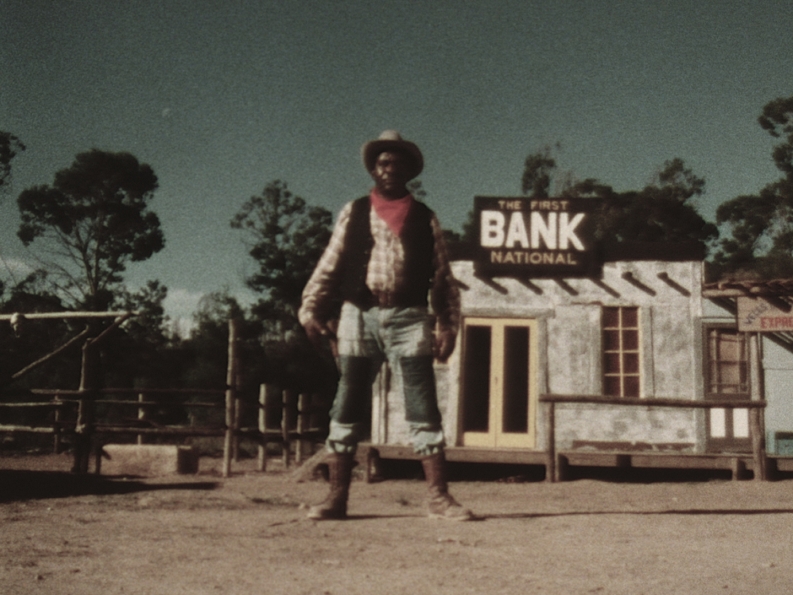
A Taste of Our Land is the first narrative feature I’ve seen that speaks to the rising Chinese influence in African countries. It’s inspired by the director’s experience working in a Chinese mine in Rwanda, where he saw a colleague beaten so badly he was hospitalized. His crime? To ask for his pay.
A Taste of Our Land features a similarly brutal Chinese-run mine in Uganda. It’s operated by a Chinese convict named Cheng that brutally beats his employees for any acts of dissent. He works for a Chinese company that don’t appear in the film. We only hear them on the other end of Cheng’s phone, emphasizing their disregard for Africa and it’s people. They’re extracting Africa’s wealth from abroad with the help of a criminal. It paints a surprisingly blunt picture of the exploitative motivations of China in Africa
The victim of this film is an older African man called Yohani who struggles to provide for his pregnant wife. He tries to get compensation for the Chinese mine which was built on his land without permission. However, because the local authorities he appeals to have already been paid off, there’s nothing he can do. The African authorities have sold him out for temporary wealth.
When Yohani discovers a nugget of gold on his land, he becomes an obvious allegory of the world’s exploitation of Africa. Three protagonists are after his new found wealth, and each one of them representatives a different world power.
- The first is the China, represented in the Chinese mine built on Yohani’s land without his permission. It reaps the fruit of the land without sharing it with the African people. They’re the new colonizers.
- The second is Britain, represented in a British immigrant named Donald that walks around wearing a colonial era helmet. The British used to hold power over Africa, but their power has waned in the last 50 years or so, represented by Donald’s asthma inhaler. Donald can’t even tell China what to do, as shown by his inability to convince Cheng to look for gold. However, his colonial era hat symbolizes that Britain still tries to cling onto its’ former power and still exploits the continent.
- The third is the Catholic church, represented in a European priest that Yohani looks to for protection. Instead of sheltering Yohani, the priest tries to steal his gold; they’re just another institution that exploits the African people.
Credit is due to the filmmakers for avoiding the conventional African film tropes of war, HIV, and witchcraft to focus on the growing Chinese influence in Africa. It’s rare to see an African film implicating other national powers and religious institutions so blatantly in its demise. However, A Taste of Our Land’s bad acting makes the allegories a bit too obvious. It highlights the heavy handedness of the script and lack of production quality of the film (it’s made on a spartan $12,000 budget). As a result, what could be a subtle implication of religious and national powers in Africa’s exploitation comparable to Andrey Zvyagintsev’s Leviathan, ends up feeling a bit stereotypically comical.
Head to our Pan African Film Festival Hub for more reviews from PAFF 2020.






You must be logged in to post a comment.